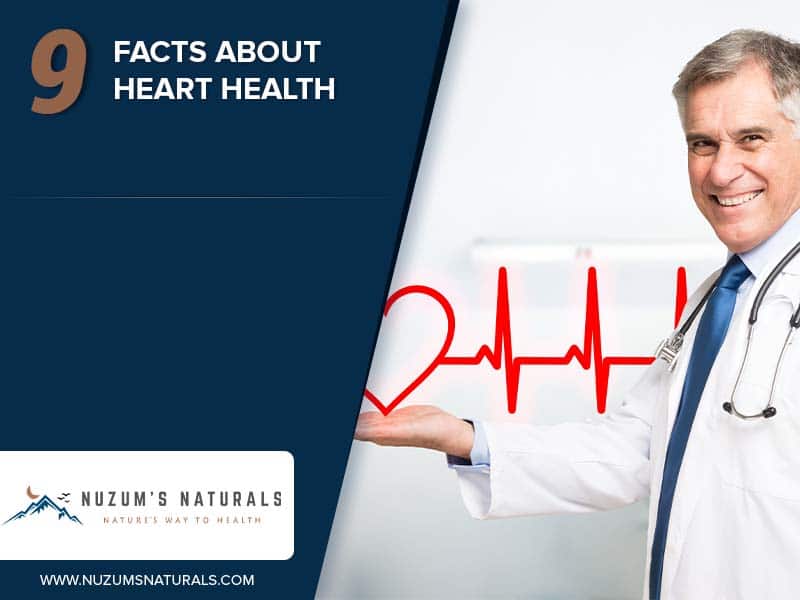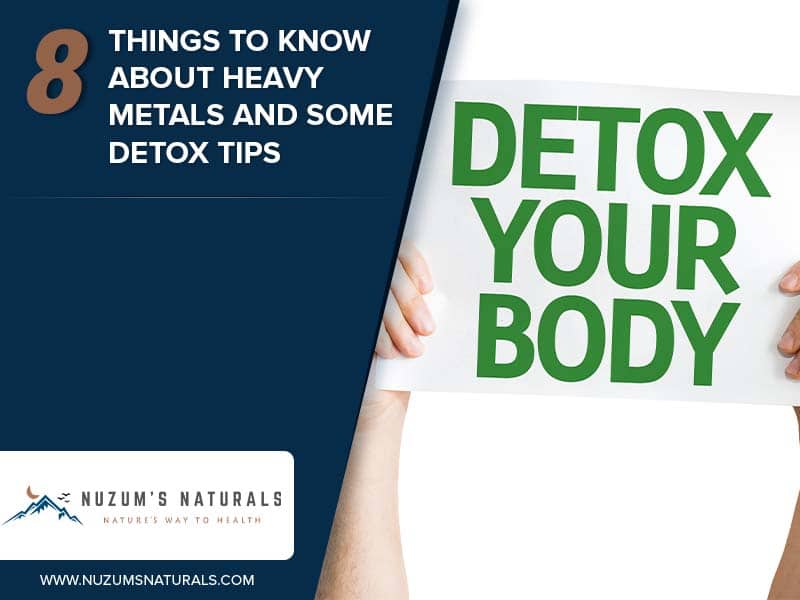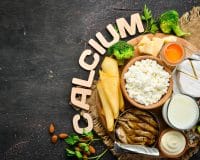9 Facts About Heart Health
According to the CDC, heart disease is the number one killer of people in the U.S. This is likely due to the standard American diet, increasing sedentary behaviors, and more time spent indoors in front of artificial lights. Together, these factors create the perfect storm for chronic inflammation and different aspects of heart disease. We must learn how to prevent heart disease by using our lifestyle choices.
In this article, we are going to cover the top root causes of heart problems (that you may not have heard before) and the nutrients that you can take to support your heart health. The heart is a high-energy muscle that needs certain nutrients to function optimally. Unfortunately, most people are either not consuming enough of these key nutrients or are not absorbing these nutrients properly. Once you have finished reading, you will be able to confidently use these nutrients in your diet to keep your heart healthy.

1Micronutrient Deficiencies
In addition to magnesium, vitamin D, and vitamin K, there is a range of nutrients that can lessen your chances of acquiring heart disease. These include flavonoids, polyphenols, electrolyte minerals, and healthy omega-3 fats. Flavonoids and other antioxidant compounds work by actively combatting the negative effects of inflammation and oxidative stress.
Polyphenols help by actually promoting mitochondrial function, which is extremely important for the heart. Minerals ensure the proper conductance of electric signals, something the heart constantly does. And finally, omega-3 fatty acids are strong anti-inflammatory agents that make up our cells. Together, a wide array of micronutrients can help prevent heart disease from many different angles. This is why we recommend a ketogenic diet with plenty of plants and antioxidant-rich herbs and spices.

2Omega-3 Fatty Acids
Most people consume a large amount of omega-6 fats and not enough omega-3. The ratio of omega-6 to omega-3 fats in the body and the sources that fats are derived from both have a profound impact on inflammatory markers in the body. Increasing omega-3 intake and working to decrease omega-6 intake is a great preventative strategy for heart disease.
Omega-3 fats also help improve calcium metabolism to prevent the deposition of calcium in the arterial lining. Omega-3 fats, namely EPA and DHA, can help improve cholesterol, triglyceride, and blood pressure values. You can acquire EPA and DHA from wild-caught seafood sources, such as Alaskan salmon, sardines, cod, and limited amounts of tuna (due to mercury). Additionally, supplementing with one to four grams of either fish or algae-sourced omega-3 fats is a great idea. However, it is essential to remember that omega-3 supplementation is not FDA-approved to prevent, mitigate, treat, or cure heart disease and shouldn’t be confused as such.

3Magnesium
Magnesium is needed to create the activated form of ATP. This is the molecule that provides the cells in your body with energy to carry out their functions. With poor magnesium levels, mitochondria, especially in the heart, will suffer. Additionally, low blood magnesium levels are associated with high blood pressure, a major risk factor for heart disease.
Magnesium plays a role in calcium metabolism, helping make sure calcium doesn’t end up in places that it shouldn’t be, such as in your arteries. Simply increasing your intake of magnesium-rich foods and supplementing with magnesium daily can go a long way in mitigating your risk of heart disease. Some excellent forms of magnesium are malate, glycinate, and especially threonate for their brain benefits. For those with digestive challenges, topical magnesium is an excellent choice. For dosage, different forms of magnesium have different bowel tolerance.

4Curcumin
Curcumin is one of the most studied anti-inflammatory compounds isolated from the Indian spice turmeric. Turmeric is one of the most heavily studied spices ever, having endless therapeutic value for many different types of diseases. This is likely due, in part, to its powerful anti-inflammatory properties.
Curcumin is a strong antioxidant that also helps balance cholesterol and calcium levels. Curcumin can be acquired by consuming turmeric in the diet; however, it is important to combine it with black pepper, a healthy fat, and a bit of heat to extract the full benefits. This is because turmeric and its compounds are not readily absorbable by the digestive tract.

5Chronic Stress
If you want the best shot to prevent heart disease, you need to improve your ability to handle stress. Chronic stress is a big factor in determining your heart disease risk. Chronic stress can be internalized by the human body in different ways, depending on one’s nutrition and mental outlook on life. When you internalize chronic stress with anxiety and the failure to meet your daily demands, this basic behavioral aspect of life can become pretty inflammatory to the body.
As we experience chronic stress, we release higher amounts of stress hormones, like cortisol, epinephrine, and norepinephrine. Additionally, chronic stress can lead to behaviors that are not in the best interest of health. Some of these behaviors are poor eating habits, smoking, and not getting enough sleep.

6Chronic Inflammation
Chronic inflammation plays a role in just about every chronic disease people face today. Looking to mitigate underlying inflammation is one of the most powerful strategies to put the body on the path toward healing itself; this holds for anything from cancer to autoimmune diseases and heart diseases. Inflammation is caused by excessive oxidative stress at the cellular level; this oxidative stress can inhibit the function of mitochondria. Mitochondria can make all of the energy needed for the cells to carry out normal functions. This means that inflammation can negatively affect just about every cell in the body by damaging the very structure we need to make energy.
You may be surprised to find out that the heart actually contains one of the highest mitochondrial densities out of any other organ and, therefore, experiences the effects of chronic inflammation much more quickly. At the same time, chronic inflammatory processes can inflame the arterial lining and promote the accumulation of plaques, which can lead to heart attack and stroke. Mitigating chronic inflammation in as many ways as possible is probably one of the most powerful ways to prevent heart disease.

7Vitamin D And Vitamin K
Vitamin D deficiency is associated with an increased risk of heart disease, diabetes, and metabolic disease. Vitamin D helps regulate calcium distribution throughout the body, especially when combined with vitamin K. Additionally, vitamin D has beneficial effects on inflammation and blood sugar control, both critical for heart health. Typically, adequate vitamin D levels can be achieved through bare skin exposure to sunlight.
As a society, we have become scared of the sun and either cover up or tend to stay inside most of the time. Others simply do not live in a location where the sun’s UV rays are strong enough to generate adequate vitamin D. This is when supplementation is crucial. To boost D3/K2 levels, take 2,000 IU and 40 mcg for every 25 lbs. of body weight; this typically will add 15-20 IU to your blood D3 levels each month. If your levels are 20, do this for three months to get you to 80 (be sure to test to make sure), and for D3 maintenance, take 1,000 IU and 20 mcg for every 25 lbs. of body weight; however, it is essential to remember that vitamin D supplementation is not FDA-approved to prevent, mitigate, treat, or cure heart disease and shouldn’t be confused as such.
Vitamin K goes hand in hand with vitamin D. Animal studies have shown that vitamin K2 not only has the potential to prevent heart disease but may be able to help remove calcium buildup within the arterial lining. However, it is important to remember that this is an animal study and that vitamin K2 supplementation is not FDA-approved to prevent, mitigate, treat, or cure heart disease. While K2 can be supplemented, it is also produced by the healthy bacteria within your gut. To support a healthy microbiome, we recommend cycling a lactic acid-based and soil-based probiotic every three to six months.

8Poor Calcium Metabolism
We have been led to believe that calcium is the panacea for bone loss. While calcium is a critical aspect of healthy bones, there is massive oversight as to the process of forming the bones. Calcium coordinates with magnesium, vitamin D, and vitamin K to ensure that it ends up in the bones.
When these nutrients are not sufficient in the body, calcium will be much more likely to end up in the arteries in the form of plaques. Recent studies have backed this up by showing that solely supplementing with calcium can increase your risk of having a heart attack. Having the critical cofactors necessary to ensure that calcium ends up in the bones and not in the arteries is critical to preventing heart disease.

9Blood Sugar Imbalance
A commonly overlooked aspect in the pursuit of preventing heart disease is blood sugar imbalances. It seems that we have been completely misdirected in what causes heart disease in this regard. We have been told for years that fats and cholesterol are the enemies when it is much more likely to be sugar.
Most people in today’s society rely heavily on carbs and sugar as primary aspects of their meals. This means that their metabolism primarily relies on sugar for energy. This kind of eating pattern creates massive fluctuations in blood sugar that contribute to the formation of something called advanced glycation end products (AGEs). This is basically when sugar molecules in the blood bind with enzymes or proteins. AGEs are highly inflammatory to the epithelial lining of the arteries, making them a risk factor for heart disease.

Heart disease is the number one killer of people in the U.S., according to the CDC. With the standard American diet, increasing sedentary behaviors, and more time spent indoors in front of artificial lights, these numbers are justified. The results are chronic inflammation and different aspects of heart disease, which can be deadly if left unchecked. Learning how to prevent heart disease by using our lifestyle choices is imperative.
In this article, we covered the top root causes of heart problems (that you may not have heard before) and nutrients that you can take to support your heart health. The heart needs certain nutrients to function optimally because it’s a high-energy muscle. Most people are not consuming enough of these key nutrients, or they are not absorbing these nutrients properly. Now that you have finished reading, you can confidently use these nutrients in your diet to keep your heart healthy.































